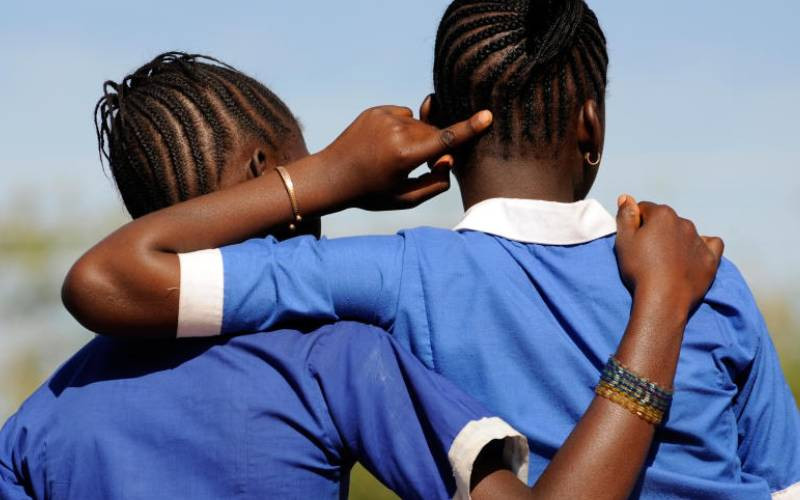
If you're trying to get pregnant, it's helpful to know when you're ovulating so you and your partner can schedule some time alone together.
Ovulation is when one or more eggs are released from your ovaries, which is when you're at your most fertile. It happens around 14 days before the end of your cycle for most - but it varies from person to person.
If you're trying for a little one, you'll need to make sure the timing is right so an egg is there ready for the sperm in your fallopian tubes.
Unfortunately there's no hard and fast rule of figuring out exactly when you are ovulating based on calendar dates alone, but your body does give you some subtle clues.
There are five key signs you should be watching out for:
Increased body temperature
Feeling a little hot under the collar? It could mean you're ovulating. Your Basal Body Temperature (BBT) - your temperature when you are resting - spikes after an egg is released due to a surge in progesterone.
Invest in a thermometer to keep track of your BBT, which helps to determine how fertile you are.
An ache in your belly
About one in five women can actually feel something happening in their ovaries around ovulation. These sensations vary wildly, and could be anything from mild aches to twinges of pain.
Some women have a condition called Mittelschmerz, where they feel ovulation as one-sided backache or a tender area. The feeling may last anywhere from a few minutes to a few days.
If you notice any aches or pains at roughly the same time each month, it could be mean you’re fertile.
Tender breasts
If your breasts are feeling a little sore about mid-way through your cycle, it might mean you're ovulating.
Some women experience breast tenderness, which is due to oestrogen levels declining after the release of an egg as the menstrual cycle moves into its second stage after ovulation - which is called the lutear phase.
Changes to cervical mucus
If you're noticing changes in your cervical mucus, it probably means you're close to ovulating. The changes are caused by rising levels of oestrogen in the body needed to release an egg.
You're at your most fertile when your mucus has the consistency of a raw egg white - clear and slippery. This is helpful for sperm moving through the uterus as it helps speed them up and also nourishes and protects them as they travel towards your fallopian tubes to meet the egg.

Feeling more sexy than usual
Is your partner turning you on more than normal? Well, seize the day, as this could mean you're ovulating. This is your body's way of telling you it's ready.
Feeling more sexy or sociable than normal are signs that you're fertile, as is the case if your partner is more flirty or attentive than normal - it means they're subconsciously picking up on your body's signals.
I think I'm ovulating - what now?
If you think you're ovulating, you don't necessarily need to act immediately. You actually have a window of about five days. This time-frame is made up of the days before ovulation and the day an egg is released.
It's important to know that your egg only survives up to 24 hours after being released, although sperm can survive for seven days.
For couples with normal levels of fertility, there is between a 20 per cent and a 25 per cent chance of getting pregnant each cycle.
So if you have sex two to three times per week during your fertility window, odds say most couples on average conceive within three months.
 The Standard Group Plc is a multi-media organization with investments in media platforms spanning newspaper print
operations, television, radio broadcasting, digital and online services. The Standard Group is recognized as a
leading multi-media house in Kenya with a key influence in matters of national and international interest.
The Standard Group Plc is a multi-media organization with investments in media platforms spanning newspaper print
operations, television, radio broadcasting, digital and online services. The Standard Group is recognized as a
leading multi-media house in Kenya with a key influence in matters of national and international interest.



